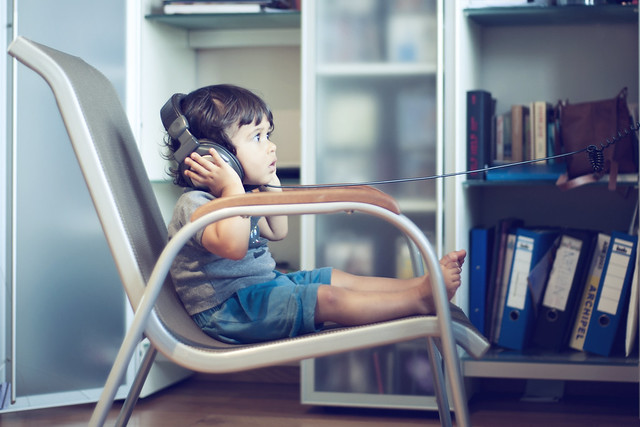For a while now I've been saying something provocative about Flipped Learning.
"It's the worst idea in the history of teaching."
I own that.
I've said it.
I say it that way to get educators attention. Because I like to have a conversation about it. While I am not going to walk that statement back like a disgraced politician I am going to do a little explaining (finally) why we need to think before we "flip" learning.
First a little knowledge leveling.
When I am talking about Flipped Learning in this post I am referring to the method by which teachers create videos (or find other videos online) and assign students to watch them at home, thereby freeing up time in the classroom to go deeper with the content because the students have the content knowledge from the videos. I am sure there are multiple different variations of Flipped Learning but for this post, this is the definition I am working off of. It's an idea thats been around for a while and some teachers have said they've found success with it.
So what's my problem with Flipped Learning? Seems like, on the surface, it could be great. Kids get the basic understanding of topics outside the classroom and when they come back they can go deeper and do something with it.
But if we look a little deeper Flipped Learning may need some serious considerations before implemented.
Too Much Focus On The Videos-In most (not all, but most) of what I have read and seen on flipped learning there are always way too many conversations on the videos. How to make them. How long they should be. Where to store them. How to ensure kids can access them.
I was in a small group discussion at a conference early this year where the conversation revolved around how to ensure kids could access the videos at home if they didn't have the technology. Eventually they talked about taking the time to make the video and then pass them out on flash drives or burn them to DVDs to all students. While the conversations around equity are important seems to me its the wrong conversation to have. If you are spending hours, bending over backwards to record, distribute and track the videos kids are required to watch at home, are you really gaining anything?
Not Enough Conversations About Pedagogy-In all that I have seen and heard, there are very little conversations about pedagogy when it comes to Flipped Learning. In order for educators to be effective in their content they have to understand pedagogy and how to ensure students are best understanding that content. The truth is, many are content experts but pedagogy needs work. Now we are going to video weak pedagogy those weaknesses just get amplified. Maybe they are using others' content. Are we effectively analyzing the videos first to ensure they are effectively communicating the content in the best way? Are we looking at them with a critical eye?
Or perhaps the direct instruction pedagogy is strong (which these videos are just that, direct instruction, which we know isn't the most effective way to gain content knowledge) but the pedagogy or understanding how to formatively assess that students understanding of the content delivered in the videos is lacking. Now there's all this free time what do you do?
We have to have serious conversations about pedagogy first before we flip. If we look at moving from direct instruction to more student-owned classrooms, where students navigate through content by their own means, we might find that the effort put into Flipped Classrooms, creating videos, and tracking views isn't really needed or necessary.
When Are Kids Supposed To Be Kids? Record yourself in your classroom for the 6-8 hours you are there teaching. Now go home and watch yourself for an additional 30 mins to 3 hours. Do you want to spend that much time listening to yourself? Maybe not. And I would bet your students, while they like you a whole, whole lot, most don't want to listen to you more than they have to.
A student's job is school. Thats what they do for those 6-8 hours. Think about our jobs. No one really looks forward to working all day then going home and working more. Why, then, should students be forced to go home and do more of work by watching these videos? We talk about wanting students to innovate, make, tinker and be creative. And there is mounds of research to suggest homework doesn't help students be better students, so why not let kids be kids when they go home.
Those are my concerns. Yet, I will admit, there might be teachers who have flipped their classrooms and who have addressed these 3 concerns I have. I wish their voices were louder because I think we could all do with those examples.
So while I am provocative when I talk about it, I do that to have a conversation. If you have flipped or are thinking about it, don't just take it at face value. Think critically about what effects it will have on you, your students and your classroom.
photo credit: dora dora 2 via photopin (license)"It's the worst idea in the history of teaching."
I own that.
I've said it.
I say it that way to get educators attention. Because I like to have a conversation about it. While I am not going to walk that statement back like a disgraced politician I am going to do a little explaining (finally) why we need to think before we "flip" learning.
First a little knowledge leveling.
When I am talking about Flipped Learning in this post I am referring to the method by which teachers create videos (or find other videos online) and assign students to watch them at home, thereby freeing up time in the classroom to go deeper with the content because the students have the content knowledge from the videos. I am sure there are multiple different variations of Flipped Learning but for this post, this is the definition I am working off of. It's an idea thats been around for a while and some teachers have said they've found success with it.
So what's my problem with Flipped Learning? Seems like, on the surface, it could be great. Kids get the basic understanding of topics outside the classroom and when they come back they can go deeper and do something with it.
But if we look a little deeper Flipped Learning may need some serious considerations before implemented.
Too Much Focus On The Videos-In most (not all, but most) of what I have read and seen on flipped learning there are always way too many conversations on the videos. How to make them. How long they should be. Where to store them. How to ensure kids can access them.
I was in a small group discussion at a conference early this year where the conversation revolved around how to ensure kids could access the videos at home if they didn't have the technology. Eventually they talked about taking the time to make the video and then pass them out on flash drives or burn them to DVDs to all students. While the conversations around equity are important seems to me its the wrong conversation to have. If you are spending hours, bending over backwards to record, distribute and track the videos kids are required to watch at home, are you really gaining anything?
Not Enough Conversations About Pedagogy-In all that I have seen and heard, there are very little conversations about pedagogy when it comes to Flipped Learning. In order for educators to be effective in their content they have to understand pedagogy and how to ensure students are best understanding that content. The truth is, many are content experts but pedagogy needs work. Now we are going to video weak pedagogy those weaknesses just get amplified. Maybe they are using others' content. Are we effectively analyzing the videos first to ensure they are effectively communicating the content in the best way? Are we looking at them with a critical eye?
Or perhaps the direct instruction pedagogy is strong (which these videos are just that, direct instruction, which we know isn't the most effective way to gain content knowledge) but the pedagogy or understanding how to formatively assess that students understanding of the content delivered in the videos is lacking. Now there's all this free time what do you do?
We have to have serious conversations about pedagogy first before we flip. If we look at moving from direct instruction to more student-owned classrooms, where students navigate through content by their own means, we might find that the effort put into Flipped Classrooms, creating videos, and tracking views isn't really needed or necessary.
When Are Kids Supposed To Be Kids? Record yourself in your classroom for the 6-8 hours you are there teaching. Now go home and watch yourself for an additional 30 mins to 3 hours. Do you want to spend that much time listening to yourself? Maybe not. And I would bet your students, while they like you a whole, whole lot, most don't want to listen to you more than they have to.
A student's job is school. Thats what they do for those 6-8 hours. Think about our jobs. No one really looks forward to working all day then going home and working more. Why, then, should students be forced to go home and do more of work by watching these videos? We talk about wanting students to innovate, make, tinker and be creative. And there is mounds of research to suggest homework doesn't help students be better students, so why not let kids be kids when they go home.
Those are my concerns. Yet, I will admit, there might be teachers who have flipped their classrooms and who have addressed these 3 concerns I have. I wish their voices were louder because I think we could all do with those examples.
So while I am provocative when I talk about it, I do that to have a conversation. If you have flipped or are thinking about it, don't just take it at face value. Think critically about what effects it will have on you, your students and your classroom.








